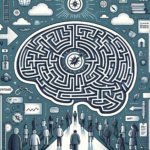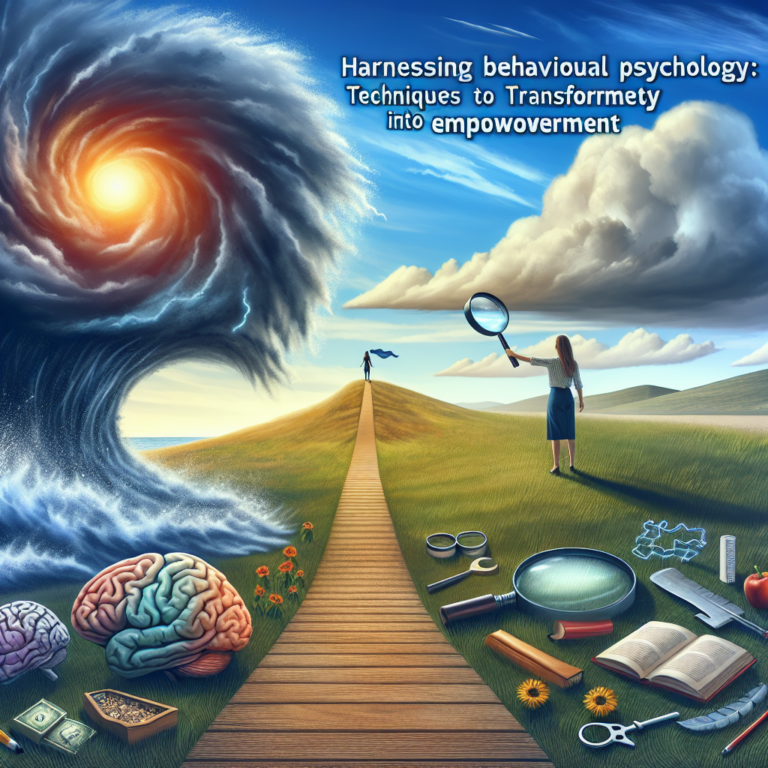
Understanding Schizophrenia: Essential Insights into Treatment Options and Efficacy
Introduction
Imagine waking up one day to a world filled with voices that aren’t there, overwhelming emotions that compel you to act against your will, and a sense of detachment from reality. For millions, this isn’t just a nightmare; it’s the daily reality of living with schizophrenia. The complexities of this mental health condition often leave patients and their families grappling with the fear of the unknown. Thus, understanding schizophrenia is critical for providing effective and empathetic care. In this exploration, we will delve into "Understanding Schizophrenia: Key Insights into Treatment Options and Efficacy," equipping you with the knowledge necessary to navigate this condition.
Understanding Schizophrenia
Defining Schizophrenia
Schizophrenia is a chronic and severe mental disorder that affects how a person thinks, feels, and behaves. Individuals may seem like they’ve lost touch with reality, which can be distressing not only for them but also for their loved ones. According to the National Institute of Mental Health (NIMH), about 1% of the population will experience schizophrenia in their lifetime, making it a significant public health concern.
Key Characteristics
- Positive Symptoms: These include hallucinations (seeing or hearing things that aren’t there), delusions (fixed false beliefs), and disorganized thinking.
- Negative Symptoms: These encompass a lack of motivation, reduced emotional expression, and social withdrawal.
- Cognitive Symptoms: Impaired memory, attention deficits, and difficulties in understanding information can severely impact daily functioning.
Understanding these symptoms is crucial for effective treatment strategies, as they guide the choices medical professionals make for each individual.
Case Study: Sarah’s Journey
Sarah was diagnosed with schizophrenia at age 22. Initially, she experienced auditory hallucinations, making it challenging for her to engage in daily activities. After seeking help, she underwent a comprehensive assessment, which paved the way for an integrative treatment plan involving medication, therapy, and supportive services.
Analysis: Sarah’s case illustrates the importance of obtaining an accurate diagnosis and developing a tailored approach to treatment. Without a clear understanding of her symptoms, Sarah might have struggled to find effective care.
Treatment Options for Schizophrenia
Pharmacological Treatments
1. Antipsychotic Medications
Antipsychotic drugs are the cornerstone of schizophrenia treatment. They help reduce the severity of symptoms and improve quality of life. There are two categories of these medications:
- Typical Antipsychotics: These were introduced in the 1950s and primarily target dopamine receptors. Common examples include haloperidol and chlorpromazine.
- Atypical Antipsychotics: These are newer drugs that act on multiple neurotransmitters, such as serotoning and dopamine. Examples include risperidone, clozapine, and aripiprazole.
| Medication Type | Examples | Common Side Effects |
|---|---|---|
| Typical Antipsychotics | Haloperidol, Chlorpromazine | Drowsiness, dizziness, tardive dyskinesia |
| Atypical Antipsychotics | Risperidone, Clozapine | Weight gain, diabetes risk |
Efficacy: Research indicates that atypical antipsychotics may lead to better outcomes for some patients. The choice of medication is highly individual and requires careful monitoring.
Psychological Interventions
1. Cognitive Behavioral Therapy (CBT)
CBT has shown promise in helping patients manage their symptoms and improve their quality of life. It empowers individuals to recognize harmful thought patterns and replace them with healthier beliefs.
Case Study: John’s Transformation
John, a 30-year-old living with schizophrenia, engaged in CBT after struggling with persistent delusions. Through therapy, he learned to challenge his irrational beliefs and gained methods to cope with stressful situations.
Analysis: John’s experience showcases the effectiveness of integrating psychological interventions with medication. His journey underscores that understanding schizophrenia also involves understanding complementary therapies.
2. Family Therapy
Including family members in treatment efforts enhances the support system, providing essential education about the disorder.
Other Treatment Options
1. Assertive Community Treatment (ACT)
ACT is designed for individuals who might not respond to traditional treatment. This program employs a team approach, delivering services directly to the individual in their community.
2. Rehabilitation and Vocational Services
These programs focus on social and vocational skills, aiding reintegration into society. They empower individuals to lead more independent lives.
| Treatment Type | Focus Area | Goals |
|---|---|---|
| Assertive Community Treatment | Community support | Reduce hospitalizations, improve daily living skills |
| Rehabilitation and Vocational Services | Life skills | Facilitate employment, enhance social skills |
Understanding Schizophrenia: Key Insights into Efficacy
Measuring Treatment Outcomes
Understanding the efficacy of treatment options requires considering both qualitative and quantitative measures. Metrics include:
- Symptom Reduction: Tracking changes in the severity and frequency of symptoms.
- Functionality Improvement: Observing how well individuals perform daily tasks.
- Quality of Life: Gathering self-reported data from patients on their overall happiness and life satisfaction.
Case Study: Maria’s Recovery
Maria struggled with severe negative symptoms that hindered her ability to engage socially. After a combination of medication and rehabilitation services, she reported a notable improvement in her quality of life, feeling more connected to her community.
Analysis: Maria’s case underscores the importance of assessing multiple facets of treatment efficacy beyond mere symptom reduction.
Challenges in Treatment
Stigma and Misunderstanding
The stigma surrounding schizophrenia often leads to discrimination and social isolation. Misunderstanding the condition can hinder individuals from seeking help or sustaining long-term treatment.
Medication Adherence
Patients might stop taking their medication due to side effects, leading to relapses. Understanding schizophrenia means recognizing the importance of ongoing support and education to encourage medication adherence.
Conclusion
Understanding schizophrenia is an essential journey, not just for those diagnosed, but for families, friends, and society as a whole. As we’ve explored in this comprehensive overview of treatment options and their efficacy, knowledge plays a critical role in fostering compassion and effective care.
In approaching treatment, a holistic understanding that combines pharmacology, therapy, and community support is vital. As you navigate this landscape, remember that hope exists, and effective treatment is achievable—armed with the right insights.
FAQs
1. What causes schizophrenia?
While the exact cause is not fully understood, it is believed to result from a combination of genetic, brain chemistry, and environmental factors.
2. How effective are antipsychotic medications?
Studies show that antipsychotic medications can significantly reduce symptoms for many people, though efficacy varies.
3. Can schizophrenia be cured?
Currently, there is no cure for schizophrenia, but many individuals manage their symptoms successfully with proper treatment.
4. What role does therapy play in treatment?
Therapeutic interventions, particularly CBT, can help patients manage symptoms and develop coping strategies.
5. How can family members support someone with schizophrenia?
Family involvement is crucial. Providing education, emotional support, and encouragement to seek treatment can make a significant difference in the individual’s recovery journey.
This article delves deep into understanding schizophrenia while highlighting key insights into treatment options and their efficacy. Remember, every journey is unique, and staying informed is the first step toward fostering a caring and supportive environment.

















